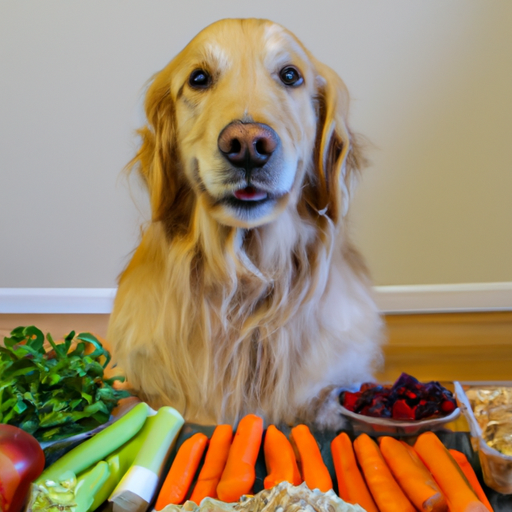As a caregiver for your beloved furry friend, you might sometimes wonder what else you can feed your dog besides the typical, store-bought dog food. Here, we delve into the topic, exploring a variety of food options that are both safe and nutritious for your canine companion.
The Importance of a Balanced Diet
First and foremost, it’s essential to understand why a balanced diet is crucial for your dog’s health. Dogs, like humans, require a variety of nutrients to maintain their overall health and vitality.
- Proteins for muscle growth and repair
- Carbohydrates for energy
- Fats for a shiny coat and healthy skin
- Vitamins and minerals for various bodily functions
While commercial dog food is usually formulated to meet these nutritional needs, supplementing your dog’s diet with other safe and healthy foods can provide variety and enhance their overall health.
Safe Fruits for Dogs
Many fruits are safe and nutritious for dogs to eat. They’re packed with essential vitamins and minerals, making them a great supplement to your dog’s diet. Some safe fruits include:
- Apples (without seeds)
- Bananas
- Blueberries
- Cantaloupe
- Cranberries
- Mangoes (without pit)
- Oranges (in moderation)
- Peaches (without pit)
- Pears (without seeds)
- Pineapple
- Watermelon (without seeds)
Remember, moderation is key. While these fruits are safe for dogs, they should be given as treats and not make up a significant portion of their diet.
Safe Vegetables for Dogs
Just like fruits, many vegetables are safe and beneficial for dogs. They provide essential nutrients and are often low in calories and fat. Some safe vegetables include:
- Carrots
- Sweet potato
- Pumpkin
- Green beans
- Cucumbers
- Peas
Again, these should be given in moderation and should not replace a balanced dog food diet.
Proteins and Grains
Proteins and grains are a crucial part of your dog’s diet. While dog food usually contains these, you may choose to supplement with additional sources. Safe proteins and grains include:
| Proteins | Grains |
|---|---|
| Chicken | Brown rice |
| Turkey | Oats |
| Salmon | Quinoa |
| Eggs | Barley |
Ensure meats are cooked thoroughly to avoid any potential bacterial infection, and grains are cooked to aid digestion.
Foods to Avoid
While many human foods are safe for dogs, there are also many that are toxic and can cause serious health problems. These include but are not limited to:
- Chocolate
- Grapes and raisins
- Onions and garlic
- Avocado
- Alcohol
- Caffeine
- Macadamia nuts
Feeding Tips
When introducing new foods into your dog’s diet, do so gradually to avoid upsetting their stomach. Always cut food into small, manageable pieces to prevent choking, and keep an eye out for any allergic reactions.
Consult Your Vet
Before making any significant changes to your dog’s diet, it’s always advisable to consult with your vet. They can provide guidance based on your dog’s age, breed, size, and overall health.
FAQs
What about dairy products?
While some dogs can handle dairy products, others may be lactose intolerant. If you wish to give your dog dairy, do so in small amounts initially and monitor for any adverse reactions.
Can I feed my dog raw meat?
While some advocate for a raw diet for dogs, raw meat can carry harmful bacteria like Salmonella. If you wish to feed your dog raw meat, discuss it first with your vet.
Can dogs eat nuts and seeds?
Some nuts and seeds, like almonds and macadamia nuts, are toxic to dogs. Others, like peanut butter, can be a healthy treat in moderation. Always research and consult your vet before feeding your dog nuts or seeds.
How much fruit and vegetables should I give my dog?
Fruits and vegetables should supplement your dog’s diet, not replace it. A good guideline is that treats, including fruits and vegetables, should make up no more than 10% of your dog’s daily caloric intake.
Are there any health benefits to giving my dog human food?
Many human foods can provide additional nutrients to your dog’s diet and serve as a tasty treat. However, they should not replace a balanced dog food diet, which is specifically designed to meet your dog’s nutritional needs.



